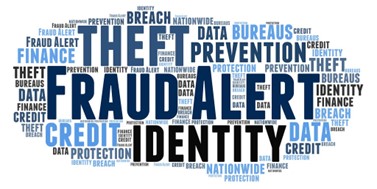
What Does It Take to Safeguard a Title?
If you hold the deed, you can’t be evicted, right? True — except if your deed is pulled out from under you by a nasty actor.
It shouldn’t happen, but it does. Just ask Dada, a homeowner in Oklahoma City. Someone recorded a quitclaim on Dada’s deed, purporting to buy the home for $10 plus an $18 recorder’s fee. The notary whose stamp appears is no longer licensed. The seller’s signature is obviously not Dada’s.
Dada is still paying monthly housing bills, and fighting an eviction.
Oklahoma County now has a free deed fraud alert system to notify deed holders about filings against their properties. But for Dada, that ship has sailed. Had Oklahoma law allowed deed recorders to examine documents for validity, Dada’s crisis could have been averted.
In Arizona, a Sting at Starbucks Happens in the Nick of Time.
Officers arrested Brian G. outside a Phoenix-area coffee shop. Late last year, Brian filed a fraudulent warranty deed with the Maricopa County Recorder’s Office to convey a Scottsdale home to a new buyer.
The buyer, someone called simply V.L., signed an agreement in March to sell the home. The plan: An April meeting at the local Starbucks, with a notary, to sign the deed over.
But law enforcement got a tip. Questions arose when the home’s rightful owner answered a call and said they had no interest in selling the home.
During the planned deed conveyance in April, Brian turned up at the coffee shop with fake identity documentation, pretending to be V.L. In a dramatic Starbucks sting, law enforcement arrested Brian under charges of forgery and fraud.
A Defrauded Deed Holder Lacks Recourse to the Law, Says a Dayton Judge.

A judge in Ohio has ruled that a woman who lost the deed to an apartment building through quitclaim fraud can’t get it back because the fraudster has already sold the home to unsuspecting buyers — just as Brian nearly did at the Arizona coffee shop.
The 75-year-old apartment owner had been grappling with the legal system for three years before the disappointing court decision.
The Dayton Daily News decided to check out the situation. According to its reporters:
- Dayton-area deed recorders are dealing with a wave of bad quitclaim deeds. And this year alone, the Recorder’s Office in Montgomery County, Ohio (home to Dayton) has turned away a dozen filings for reasons related to problematic notaries (including expired statuses, and dead, fictitious, revoked, or duplicate notaries).
- Shady quitclaim filers make off with heaps of money by reselling stolen homes. The stolen deed to the apartment building, for example, was reconveyed to an LLC that resold the property.
- Victims struggle to find any support once the swindlers pass the deeds along to buyers without knowledge of the prior fraud.
Reporters say some victims are able to get default judgments, as the people named on falsified documents may fail to show up in court. But most all victims have to struggle with local bureaucracies. Many spend thousands on legal costs, trying to reclaim their deeds.
The Ohio Recorders’ Association advocates for stronger state laws to stop deed thieves.
After Media Coverage in Atlanta, Georgia Deed Holders Will Be Better Protected.
In Georgia, no ID or proof of ownership has been required to file a deed. Anyone could do it, no questions asked. The filer of the deed simply had to follow procedure and submit a fee to the recording office. This is typical, in fact, of most states.
But this month, May 2024, Georgia law changed. Governor Brian Kemp signed a new, bipartisan bill to make deed filers show official identification. This was prompted by Misdeeds, an investigative news project. Atlanta News First interviewed multiple homeowners who say fraudsters took their deeds.
The investigative news team noted a “lack of oversight into the notaries” as well as a “pattern” of deed abuse in and around Atlanta.
The new law, Georgia’s House Bill 1292, intensifies punishments for deed fraud, and lays out new notary record-keeping rules for self-filed deed signings. All lay people who submit deeds for recording will have to use the electronic system.
The law is poised to go into effect on the first day of 2025.
Meanwhile, in New York City, a Swindler Faces Sentencing.
Justin J. pleaded guilty to fraud charges involving five stolen deeds. Court documents show:
- A 2019 deed transfer from a 78-year-old to Justin’s spouse. When contacted, the named notary said the deed was fake. The couple sold the home, forging a death certificate in the victim’s name.
- A 2019 filing of a deed into Justin’s name, forging the signature of the owner, who was not living in the home. The next time the owner came to the property, the house had been torn down.
- A 2019 filing of a deed into Justin’s name, including the false claim that he paid $50,000 for it.
- A 2020 transfer of a home in Queens Village into Justin’s name, using the real owner’s forged signature.
- A 2020 filing of a forged deed conveying a South Ozone Park home to Justin — who masqueraded as someone else when taking the title.
Justin’s sentencing will occur in June. The DA is moving, under New York law, to restore the deeds to their rightful owners, so they can avoid further efforts and legal costs. Justin agreed to release the deeds. He will also pay back $335K in ill-gotten gains from his fraudulent home sales.
There Are Steps You Can Take to Protect Your Deed From Fraud.
Deed fraud will happen much less frequently if more states follow the lead of those that vet the people filing property transfers.
Meanwhile, sign up with your county for deed alerts. If there’s no deed alert system, ask your county or state to create one, the way Georgia did for all of its counties with its FANS — the Filing Activity Notification System. With FANS, residents can opt in — online or in person — to receive an email and/or a paper notice alerting them to recording activity that affects them.
These systems send messages to deed holders whenever someone records a significant filing on a deed. While this kind of system won’t prevent the fraud in the first place, it allows you to address the matter quickly, before the deed is reconveyed.
Supporting References
Kevin Reagan for KPNX (Avondale, Arizona): Arrest Made in “Fraudulent” Deed Scheme as Valley Home Was About to Be Sold (Apr. 11, 2024).
Sydney Dawes for Dayton Daily News (Cox Enterprises): Investigations – Quitclaim deed fraud pervasive in region with few consequences (Apr. 4, 2024).
Ciara Cummings and Tim Darnell for Atlanta News First (WANF, a Gray Media Group, Inc. channel), via WANF.com: Is It Hard to Steal Your Home in Georgia? Experts Say No (Apr. 10, 2024).
Deanne Stein for News on 6 (Tulsa, Oklahoma) KOTV / KQCW by Griffin Media via NewsOn6.com: Deed Scam – OKC Family Receives Eviction Notice on Home They Own (Apr. 3 2024).
Queens County District Attorney Press Release (Kew Gardens, New York) via QueensDA.org: South Ozone Park Couple Plead Guilty in Deed Fraud Scheme to Steal Homes in Southeast Queens (May 2, 2024).
And as linked.
More on topics: Quitclaim deeds legitimate use, Quitclaims and taxes
Photo credits: Kindel Media, via Pexels/Canva; and Flickr, licensed under CC-BY-SA 2.0 Generic.
